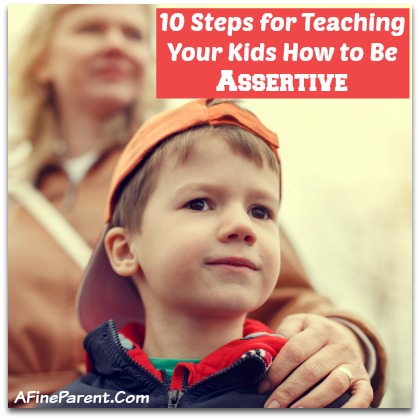 Are you struggling with a child who has difficulty standing up for himself?
Are you struggling with a child who has difficulty standing up for himself?
Maybe you’re worrying about your own level of assertiveness and how to model strong behavior?
I am the child of a mother who blurred the lines between where she ended and where I began. I grew up with very little understanding of personal and emotional boundaries.
I was expected to agree with my mother’s opinions without question. If I didn’t, there were consequences, usually in the form of yelling or loss of a privilege as punishment for my “disrespect.”
I rarely spoke up for myself or shared my personal feelings because I was afraid of what might happen if I did.
As an adult, I am still hesitant to assert myself with my friends, family, coworkers, or even casual acquaintances.
I have struggled with a lifetime of silence in which I hesitate to speak my mind for fear of negative consequences or withdrawal of love by people close to me. I struggle with feeling responsible for the feelings of others and avoid saying or doing something that I think might upset someone else.
I have been told that these were positive traits because I am “sensitive to others” and “have a good heart.” But I have paid a steep price for my silence in the forms of low confidence, low self-esteem, and severe passivity.
Now that I am a mother, I’m trying to learn how to assert myself and set appropriate boundaries in my relationships. My ultimate goal is to teach my daughter what I learn about assertiveness so she can live a less anxiety-ridden life.
I have discovered that there are many like me who were raised “to be seen and not heard” and who want to stop the cycle of passivity and raise children who advocate for themselves.
Over time, I have learned that there are 10 key steps to helping children learn to be assertive. Do I always implement them with flawless precision? I’m afraid not.
But I’m doing my best to unlearn the behaviors I acquired in childhood and raise an assertive child who possesses unwavering self-respect. That’s the best we can do right?
OK, here we go –